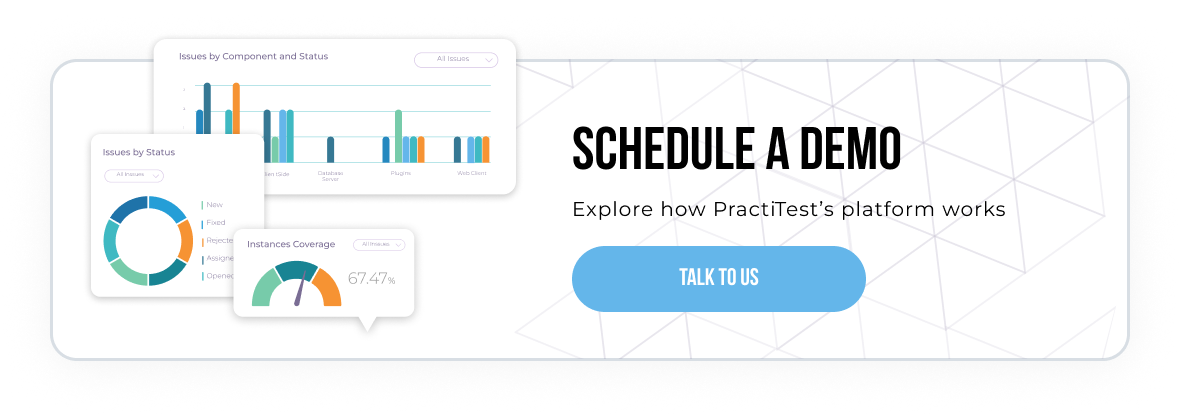“Experience is the teacher of all things.” Julius Caesar
Whether you agree with this statement or not, we can’t argue that experience is valuable, and a thing that in many cases, lack of it existence has a negative impact on new professionals' chances of getting hired or climbing up the ladder.
We work hard to learn new skills, either from formal education such universities or colleges or from online courses such as Coursera, or Udemy, read relevant blog posts and listen to podcasts. But in the end, there are things that are a part of On Job Training (OJT) that learning on our own can’t replace. But, iit doesn’t mean that we should not learn from other people's experience in order to reduce our need for trial and error.
This is exactly the reason why we have approach members of the global testing community from India, the US, Serbia and Israel who holds 100s of years in combined experience and asked them to share one tip they wish they got when they first started their career as QA professionals:
-
Jean Pierre-Louis, PMP - Software QA Manager at Cengage
- Practice, Practice, Practice (find github projects that needs testing and test them) write automation for sites you're familiar with.
- Build mini applications to understand how projects are built, so you can get an idea of how to test new projects.
- Join a community of testers so you can learn industry standards and new tips and tricks.
-
Abhishek Kumar, Technical Leader at Nokia
Learn thoroughly (At Least theoretically) the basics of trending tech (dev/test).
As a new person on the job, Try not just closing your daily assigned tasks but try to count your new learnings every day.
-
Nenad Cvetkovic, Lead Software Quality Assurance Engineer
I wish I knew that I have to be more open minded. I plan my activities, think how the application will be used, think how I can break the functionalities. Later I found out that I must start thinking about all the "impossible" ways to break that piece of software. I should start questioning things which are taken for granted. What if they stop working or start providing unexpected information? This leads to a deeper understanding of how applications work and with that knowledge what I must do to check those exceptional situations
-
Darci Herl ,Quality Analyst Specialist at Auto-Owners Insurance
Taking time to be organized and to have complete understanding of changes on the front side of testing saves a lot of time later.
The only dumb question is the one unasked. Not asking questions leads to assumptions, and assumptions lead to mistakes.
-
Santhosh Tuppad, Ethical Hacker / Security Expert
Cultivate a habit of reading documentation on the web about why things work the way they do. Didn't understand? Read again and again until you get it.
-
Raj (Raj Subramanian) Subrameyer, Tech Career Strategist | Author of the book #skyrocketyourcareer
"One tip I wish I learned was how soft-skills are a vital part of your daily job. I would say about 80% of your work as a software tester is about how you convey the information to different roles in your team and help make informed decisions. I had to learn this the hard way and I wish I realized this fact sooner."
-
Sannan Butt, SQA Team Lead at Pixako Technologies (Pvt.) Ltd
"Domain/Application knowledge should be strong enough to defend your bug."
-
Joel Montevlisky, Co-Founder and Chief Solution Architect at PractiTest
Trust your instincts, do not undersell your opinions and ideas when comparing them with those of Developers or Product people.
You are not the one responsible for bugs that escape into the field. Your job is to provide visibility into the status of your project and your product, but it is impossible for you or any other tester to find all the bugs before the release date.
Each player in the team has a role to play. Yours is to ask questions and point at things that look or sound out of place. Some of your questions will not be very important and may be treated as irrelevant, and some will be uncomfortable to your teammates as they will showcase mistakes they made, but in the end these questions are the tools you use in order to ensure your product is delivered with the desired quality to your users.
Do you have a tip of your own that you would like to share with new members of the testing community?
Share them with us to: marketing@practitest.com and we will add them as well
10 Common Testing Pitfalls - the main common testing mistakes












